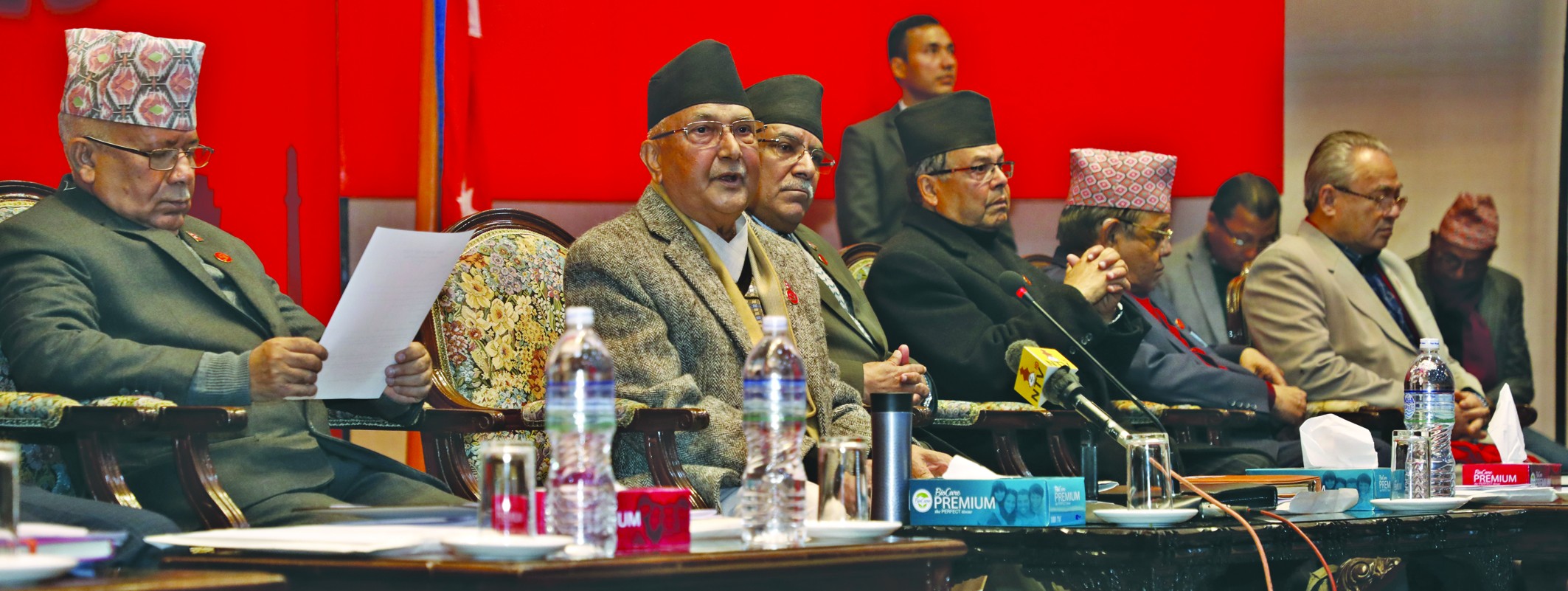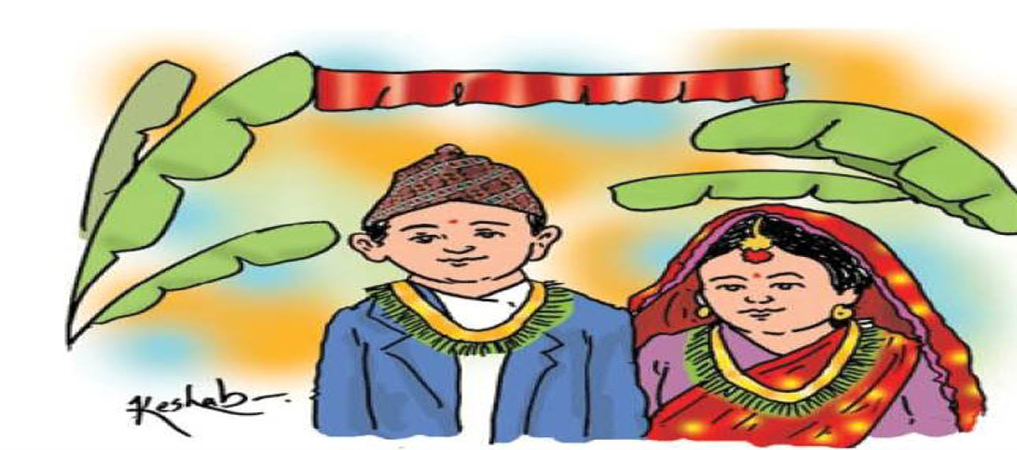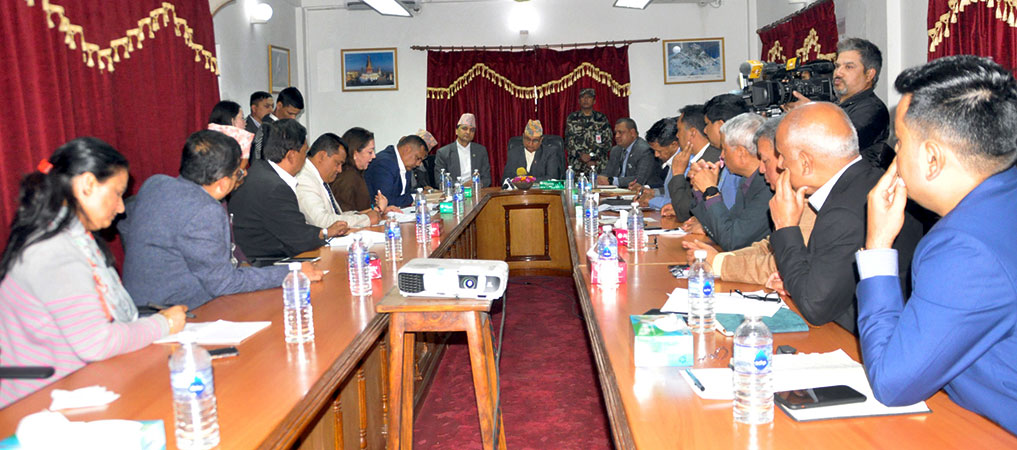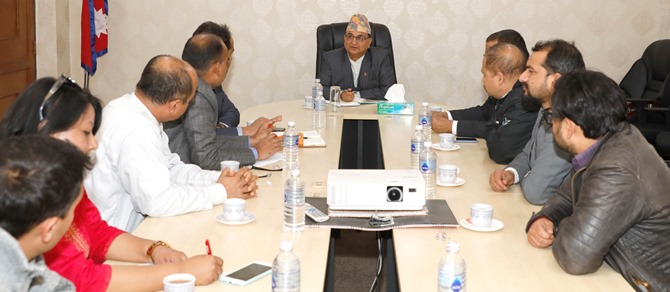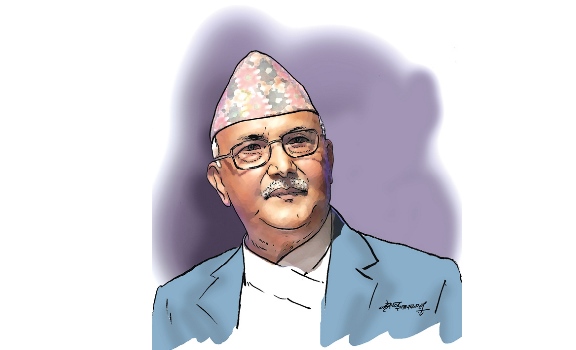Number of women seeking maternity services records sharp fall during lockdown

By Arpana Adhikari
Kathmandu, June 13: Amid the coronavirus lockdown, women seeking maternity, pre- and post-natal services have declined rapidly throughout the country, which may result in increased suffering and eventual death of pregnant women.
The ongoing corona-induced restrictions and fear among both the service seekers and providers have caused severe disruption in access to maternal healthcare, including ante-natal health check-ups, scans, institutional deliveries and post-natal heath check-ups.
Chief of the Safe Motherhood Unit at the Family Welfare Division, Dr Punya Poudel, said the institutional delivery rate had declined across the country in the lockdown period by 50 per cent in rural areas, while up to 20 per cent in the cities.
Dr Jageshwor Gautam, outgoing Director of Paroprakar Maternity and Women’s Hospital, said as the lockdown continued for over two and a half months amid COVID-19 menace, the number of women visiting hospitals for ante- and post-natal health check-up had dropped drastically.
“Daily around 700 women used to visit hospitals’ OPD department prior to the lockdown, but now only 300 women are visiting for check-ups. Due to the lockdown restrictions and underlying fear of the virus, pregnant women are reluctant to reach the health facilities for regular follow-ups,” said Gautam, Spokesperson of Health Ministry.
Apart from the ante- and post-natal care, institutional delivery had also dropped from 60-70 deliveries to 50-60 deliveries in a day, he added.
Like Maternity Hospital, Patan Academy of Health and Sciences, too, witnessed a decline in the institutional delivery within the period.
Director of the academy, Dr Bishnu Sharma, said prior to COVID-19 lockdown, daily around 13-15 deliveries used to be done in the hospital while the number has dropped to 8-11 in a day now.
This is not just a case of state-owned hospitals. Even the private hospitals in the valley have witnessed decline in the number of institutional deliveries and patients seeking ante- and post-natal check-ups.
According to the Nepal Demographic Health Survey 2016, the proportion of institutional delivery is 57 per cent while the proportion of delivery by skilled birth attendants is 58 per cent.
The declining number of institutional deliveries indicates that more women are opting for unattended births at home, said Dr RP Bichha, former Director at Family Health Division, adding that this may cause a spike in maternal mortality and morbidity rates.
What is causing this?
Dr Bichha said the ongoing lockdown restrictions had been a major barrier for women to reach the health institutions. They avoided visiting medical institutions in lack of transportation and high cost of ambulance.
They are also scared of visiting hospitals in fear of getting COVID-19, he said, adding that
even the doctors in some hospitals and healthcare centres were not attending their patients.
Doctors and health professionals are reluctant to attend the patients because they lack an adequate amount of personal protective equipment and incentives to work during this pandemic, he added.
“This could increase the preventable health complications among the pregnant women,” said Bichha. “Both the people and health professionals should understand that if precautionary measures are taken while providing services, there is a slim chance of being infected with the disease,” he added.
He also asked the government to ensure 100 per cent protection to the health professionals and provide incentives for providing maternal care.
37 maternal mortality reported in lockdown
At least 37 women have died in Nepal, including the first COVID-19 victim, in the period due to birth-related complications, said the Family Welfare Division of the Department of Health Services.
According to Division chief Dr Poudel, the majority of maternal deaths were reported from the health institutions, while some women have died while giving birth at home. “The maternal deaths have been reported due to the delay in receiving healthcare. The lockdown restriction remained a major problem for timely treatment.”
Similarly, the non-communicable diseases, like blood pressure and sugar, are another cause of maternal death, said Dr Poudel.
Setback to achieve goal in maternal care
As the essential health services are hampered, experts are worried that this may lead to increased suffering and eventual deaths of pregnant women.
Concerns are rising that the coronavirus pandemic and prolonged lockdown will result in a huge setback to Nepal’s stride towards reducing the maternal mortality ratio to 70 per 100,000 births by 2030.
“This may cause spike in maternal mortality ratio (MMR) and morbidity rates. However, it’s hard to estimate at this point by how much this will affect, but this will definitely increase MMR as we see sharp drop in institutional deliveries and ante- and post-natal check-ups,” said Biccha.
He said that one of the major reasons behind maternal death was unsafe home deliveries and the other reason being poor health system.
“Women need special medical care from pre-planning period of pregnancy to the post-partum period. Strengthening overall health system is a must to achieve this goal. The state should ensure this facility even in the time of pandemic,” said Dr Bichha.
Nepal has also committed to reduce maternal mortality to 125 per 100,000 births by 2020, said Dr Bichha. “I am worried that this target seems impossible to meet, as the pandemic may further increase the maternal mortality in the coming days.”
As per a study carried out in 2016, maternity mortality ratio in Nepal is 239 per 100,000 births. Nepal had reduced the MMR from 539 in 1996 to 239 in 2016 and the country had received the Millennium Development Goal Award for this great achievement.
Recent News

Do not make expressions casting dout on election: EC
14 Apr, 2022
CM Bhatta says may New Year 2079 BS inspire positive thinking
14 Apr, 2022
Three new cases, 44 recoveries in 24 hours
14 Apr, 2022
689 climbers of 84 teams so far acquire permits for climbing various peaks this spring season
14 Apr, 2022
How the rising cost of living crisis is impacting Nepal
14 Apr, 2022
US military confirms an interstellar meteor collided with Earth
14 Apr, 2022
Valneva Covid vaccine approved for use in UK
14 Apr, 2022
Chair Prachanda highlights need of unity among Maoist, Communist forces
14 Apr, 2022
Ranbir Kapoor and Alia Bhatt: Bollywood toasts star couple on wedding
14 Apr, 2022
President Bhandari confers decorations (Photo Feature)
14 Apr, 2022


